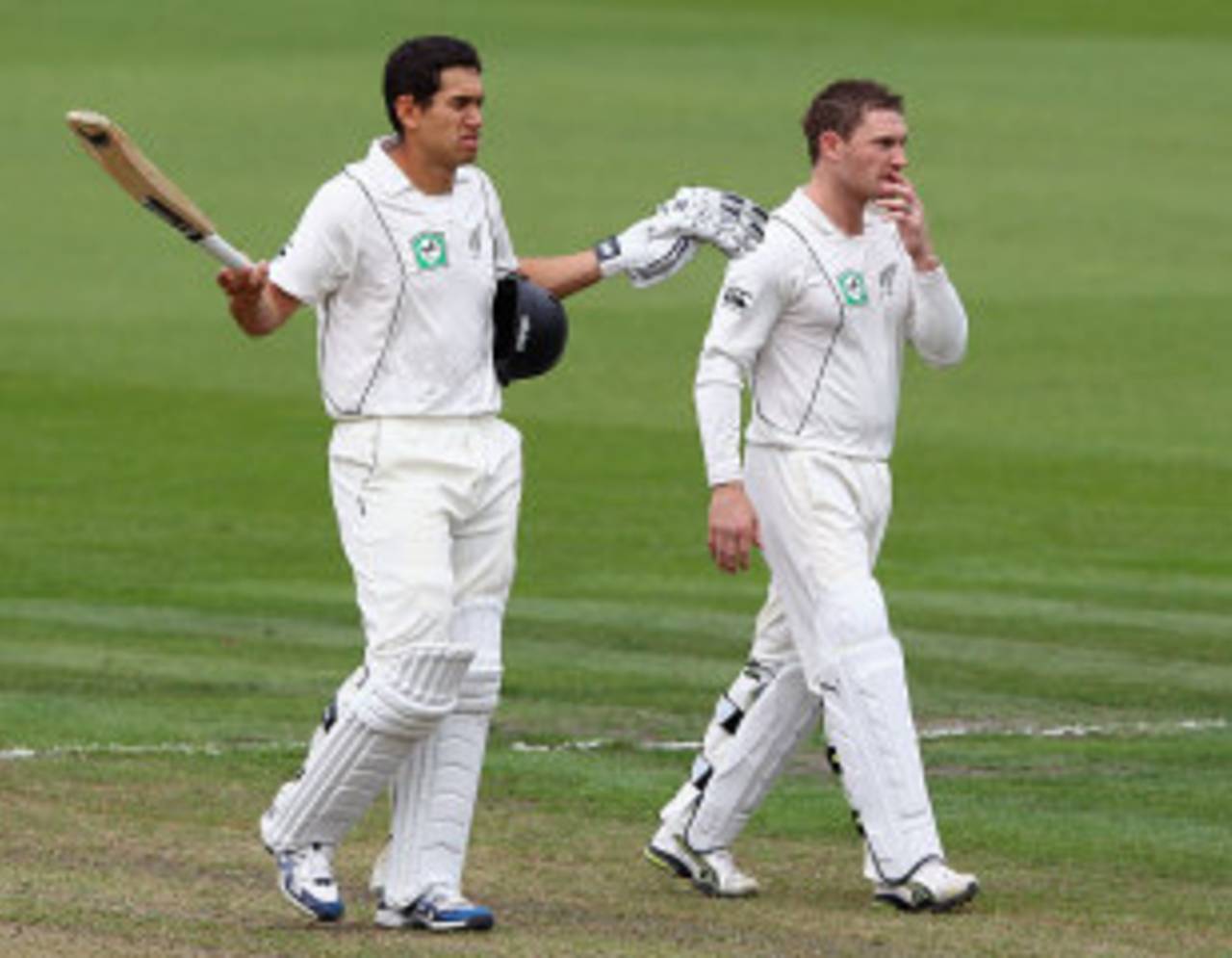Publicly, at least, players from both England and New Zealand are playing a straight-bat to what is
happening with Australia. Privately, you suspect, they are all desperate for the gossip.
"It's very hard for me to comment on something I'm not part of,"
Alastair Cook said. "I'm a long way away from it. You do have an interest in it - of course you do, because you're interested in cricket - but the main focus for us is the start of tomorrow's game."
Brendon McCullum's tone was very similar.
Each of these teams has recent experience of what internal strife can do. Kevin Pietersen's 'reintegration' dominated the latter part of last year for England while New Zealand had to deal with the scrappy transition of leadership from Ross Taylor to McCullum. There was a short-term hit with both: England lost their Top test ranking to South Africa (although Pietersen's presence in the final Test may not have saved it) and could not defend their World Twenty20 crown. New Zealand went to South Africa, minus Taylor, and were hammered in both Tests.
However, there was soon light at the end of the tunnel. England secured an historic series win in India, during which Pietersen played a defining role with a breathtaking 186 in Mumbai, and New Zealand gained a galvanising one-day series victory in South Africa and their mini-revival continued in the first Test
in Dunedin. Although both these situations are not entirely comparable to Australia's predicament (despite Mickey Arthur referring to the Pietersen situation) it shows that, however rocky the current status appears, sport often shows a great ability to move on quicker than imagined.
That is not to say that England and New Zealand are without any issues - sporting teams are rarely without a problem or two - but the sides that will go head-to-head in Wellington over the next five days have pulled together on the field. That, in the end, is what the supporters want to see.
In comparison to events in Mohali, the build-up in Wellington could not have been more mundane. Most interest centred on Pietersen's knee but both Cook and Andy Flower have tried to dampen the issue. Pietersen took a full part in training in both warm-up days although he continues to have his knee heavily strapped.
McCullum confirmed that New Zealand will be unchanged and it is expected that England will follow the same route. The home side has gone to great lengths to ensure the pace bowlers are recovered from their high workloads in Dunedin and they have barely bowled in preparation for this match. Perhaps it was mind games, emphasising that his bowlers are fresh, but McCullum made it very clear that he would bowl first again. Of course, that doesn't mean he has to when the coins goes up on Thursday morning.
Who holds the advantage? It is a familiar question when a Test ends in the manner of Dunedin with one side being on top throughout the match, but the other producing an impressive rearguard to hold out for a draw. On a couple of occasions under Andrew Strauss, England used the belief gained from saving a game to win the following fixture. Against Australia, in Cardiff, in 2009 they survived nine down then won the Lord's Test handsomely and on the 2009-10 tour of South Africa another last-wicket survival, at Centurion, was converted into an innings victory in Durban. On a different note, England's eventual success in India stemmed from the fighting second innings in Ahmedabad, which was again led by Cook.
On the flip side, New Zealand have shown that they remain capable of capitalising on a team that doesn't keep its concentration. All the talk of how the University Oval pitch killed off a chance of a result is misguided. There were nearly four sessions lost to the weather and England ended 128 ahead with four wickets in hand. Another day and there would certainly have been a winner. For McCullum, the significance of New Zealand's performance in Dunedin was not putting England in their place but instead giving his own team confidence after the recent problems.
"I think England respect us anyway, so it wasn't about sending messages to them; it was about sending them to ourselves that we are good enough to compete with the best teams and able to do it for long periods of time," McCullum said. "Being able to dictate a Test is something we've not been able to do for a period of time against a top quality team and it was a nice feeling to do so. It has raised the expectation, which is a nice place to be."
For the next five days nothing matters to these two teams except what happens in the middle of the Basin Reserve. Perhaps, though, in a more relaxed moment or two, there might just be half an eye on Mohali.
